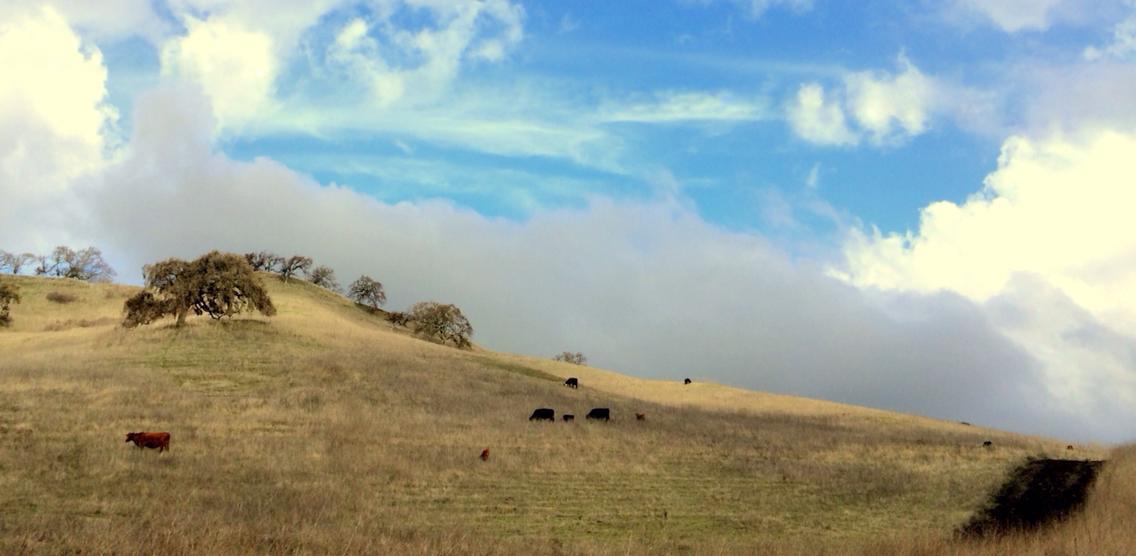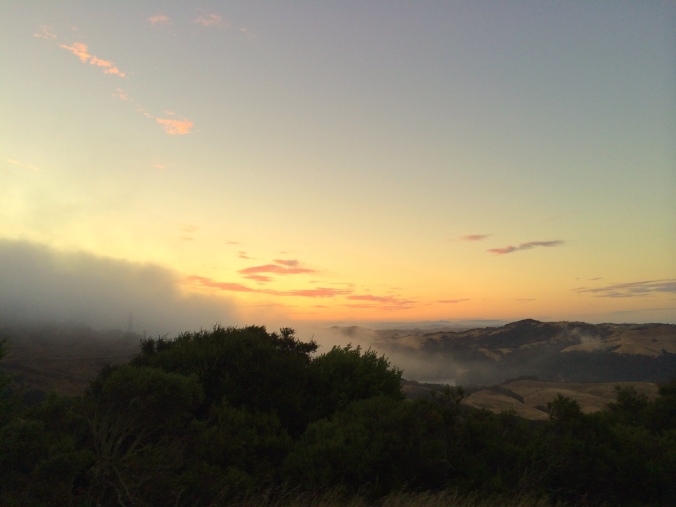Pinecrest
For my birthday I’ve gifted myself hours and hours of breaking trail through thigh-deep powder, a few steps at a time under the weight of a heavy pack. The gift part is that I’m still physically able to do this, I guess.
I’m only a few miles from the trailhead when I decide I’ve had enough. In a meadow strewn with boulders I spot a Forest Service shelter that isn’t on my map. It must be locked, but the galling memory of every time I’ve assumed as much and been wrong compels me to dig it out anyway, just in case. This takes forever, and as the shoveled well around the entryway grows I become increasingly paranoid that it will cave in and bury me. The door, when I reach it, is dead-bolted twice. Whatever, I think, I didn’t want hantavirus anyway.
Every time I’m alone in the snow there’s at least a 20-minute period when I think I might actually die. Inevitably my hands get too numb for the basic tasks of survival—zipping up a jacket, staking a tent, lighting a stove—and I start to panic. After each near-miss I acquire more and more expensive gloves, more and more generous sleeping gear, always with the same result. On some level it’s absurd that I keep trying.
When I start back the next morning, envisioning an easy cruise to the car, I find that someone has made the mystifying decision to ski over my snowshoe track. Snowshoeing over ski tracks is a widely understood faux pas, but it turns out the opposite is also extremely unhelpful. Fuming, I stop to tighten my snowshoes and snap three of the bindings in succession. Another surge of fear.
But I have brought zip ties. Older and wiser, after all.
The Great Bay Snow-Chase
This is the winter so wintery that it snows at home. An inch in the bay is worth more to me—devoted disciple, First Church of the Incongruous—than ten feet in Tahoe. From Mt. Tam, the San Francisco skyline against the white-lined ridge looks like Denver transported to the edge of the sea. It’s uncanny, dreamlike: and it was my house but it wasn’t my house, you know?
The thin dusting over the manzanita bushes is melting rapidly in the afternoon sun, and the runoff streams in blinding bright rivulets down down the slick stairs. Looking from my wet shoes west to the ocean I feel I’m in the veins of the watershed, flowing out to the horizon, with no point of reference for this idea but that one episode of the Magic School Bus. Am I a synaptic firing of the universe? Am I Miss Frizzle?
I spend the weekends on a tear, trying to tick off the compass points before the temperatures rise. As a non-skier, I’ve never gone this hard this early in the year in my life. North, in the Berryessa National Monument, the look of the stark white snow line meeting electric green grass is so entirely novel I can’t stop staring, keep tripping over my feet in the mud as I walk. South, on Umunhum, I bail below the summit wet to the skin in horizontal sleet. East, in the parking lot at the top of Diablo, gleeful kids are throwing snowballs and there’s a holiday air. The crowd is disproportionately brown, sort of like me, and very like me is genuinely impressed. “Isn’t it wonderful?” asks a gap-toothed man, extending a fleece mitten over the view. It is, it is.
Beneath it all, though—as snow always conceals hazards—is the dim awareness of impending disaster, the climate (climactic?) axe overhead. This might never happen again, I hiss to myself, whenever I want to stay home. The future is fire. You have to go now.
Phantom Falls
This place is a notorious Instagram shitshow. I’m trying it on a weekday, before the big blooms, at five in the fucking morning—and still another car pulls up before I’ve got boots on.
In a way this is worse than arriving to a full lot, which I could have simply resigned myself to in the way that most Californians accept as the cost of doing business here, a half-dozen times a day. Instead, the idea that I might still be in striking distance of solitude sends me half-running across the stubbly plateau in the pre-dawn light, stumbling in the pocked earth before the dim silhouettes of startled cattle.
It’s worth the indignity for a half-hour or so alone at the bottom of the falls. The ravine is heavy with primordial silence despite there being, in fact, all sorts of noise: the water spattering into the black pool at the base of the big basalt columns, wrens calling, the rustle of the wind stirring the oaks. Having gotten what I came for I can take my time on the way back, follow the shallow stream away from the cliff edge into a Lisa Frank montage of yellow monkey flower. In the water, lecherous orange newts tumble in weird, writhing balls. Overhead, I see my first-ever sandhill cranes—impossibly big, another missive from a million years past.




















